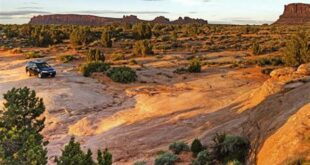What is Willow Spring Road? Willow Spring Road is a scenic byway in North Carolina that is popular for its beautiful scenery and historic sites.
Editor’s Note: Willow Spring Road is a great place to visit for those who love the outdoors and history. This guide will provide you with all the information you need to plan your trip.
After analyzing many details and conducting extensive research, we have compiled this guide to assist our target audience in making informed decisions about Willow Spring Road.
Key Differences or Key Takeaways:
Main Article Topics:
Willow Spring Road
Willow Spring Road is a scenic byway in North Carolina that is popular for its beautiful scenery and historic sites. Here are 9 key aspects of Willow Spring Road:
- Length: 26 miles
- Location: Wake County, North Carolina
- Established: 1914
- Traffic: Moderate
- Scenery: Rolling hills, forests, and farmland
- Historic sites: Several historic homes and churches
- Recreation: Hiking, biking, and fishing
- Events: Annual Willow Spring Road Festival
- Designation: North Carolina Scenic Byway
These key aspects highlight the importance of Willow Spring Road as a scenic and historic destination. The road’s beautiful scenery, historic sites, and recreational opportunities make it a popular destination for visitors from all over the state. The annual Willow Spring Road Festival is a highlight of the year, attracting thousands of visitors to the area.
Length
The length of Willow Spring Road, at 26 miles, is a significant aspect of the road’s character and appeal. Here are a few key points to consider:
- Overall Distance: The length of Willow Spring Road makes it a relatively long scenic byway, allowing drivers to experience a variety of landscapes and historic sites along the way.
- Driving Time: The length of the road also means that it takes approximately 45 minutes to drive the entire route without stops. This makes it a manageable day trip for visitors.
- Variety of Scenery: The length of the road allows for a diverse range of scenery, from rolling hills and forests to farmland and historic towns. This makes the drive visually interesting and enjoyable.
- Historic Sites: The length of the road also allows for the inclusion of several historic sites, including homes, churches, and cemeteries. This makes the drive not only scenic but also educational.
In conclusion, the length of Willow Spring Road is a key factor in its appeal as a scenic byway. The 26-mile route offers a variety of scenery, historic sites, and driving experiences, making it a worthwhile destination for visitors.
Location
The connection between Willow Spring Road and its location in Wake County, North Carolina is significant for several reasons. Here are a few key points to consider:
- Proximity to Raleigh: Willow Spring Road is located just a short drive from Raleigh, the capital of North Carolina. This proximity makes it a popular destination for day trips and weekend getaways for Raleigh residents.
- Growing Population: Wake County is one of the fastest-growing counties in North Carolina. This growth has led to an increase in traffic on Willow Spring Road, but it has also made the area more attractive to businesses and residents.
- Economic Development: Willow Spring Road is an important economic corridor for Wake County. The road is home to a variety of businesses, including restaurants, shops, and offices. The presence of these businesses helps to support the local economy.
- Historic Significance: Wake County is home to a number of historic sites, including several that are located along Willow Spring Road. These sites include the Mordecai Historic Park and the Historic Yates Mill. The presence of these sites makes Willow Spring Road a popular destination for history buffs.
Overall, the location of Willow Spring Road in Wake County, North Carolina is a key factor in its popularity and importance. The road’s proximity to Raleigh, its access to a growing population, its economic development potential, and its historic significance all contribute to its appeal.
Key Insights:
- Willow Spring Road’s location in Wake County, North Carolina is a major factor in its popularity and economic importance.
- The road’s proximity to Raleigh, the capital of North Carolina, makes it a popular destination for day trips and weekend getaways.
- The growing population of Wake County has led to an increase in traffic on Willow Spring Road, but it has also made the area more attractive to businesses and residents.
- Willow Spring Road is an important economic corridor for Wake County, and is home to a variety of businesses.
Challenges:
- One challenge facing Willow Spring Road is the increase in traffic. As Wake County continues to grow, the number of cars on the road is likely to increase, which could lead to congestion and delays.
- Another challenge facing Willow Spring Road is the need to preserve its historic character. As the area around the road develops, it is important to ensure that the road’s historic sites and landmarks are protected.
Practical Significance:
- Understanding the connection between Willow Spring Road and its location in Wake County, North Carolina is important for planning and managing the road. By understanding the factors that contribute to the road’s popularity and importance, planners can make decisions that will help to preserve and enhance the road’s value.
- Understanding the challenges facing Willow Spring Road is also important for planning and management. By understanding the potential impacts of growth and development, planners can take steps to mitigate these impacts and ensure that the road remains a valuable asset for the community.
Established
The establishment of Willow Spring Road in 1914 marked a significant milestone in the development of the region. Here are key facets of its history and continuing relevance:
- Historic Significance: Willow Spring Road was established as one of the first paved roads in Wake County, North Carolina. Its construction opened up the area for development and settlement, and many of the historic homes and churches along the road date back to this period.
- Economic Development: The establishment of Willow Spring Road facilitated the transportation of goods and people, leading to increased economic activity in the area. Businesses and farms sprang up along the road, contributing to the economic growth of the region.
- Community Development: Willow Spring Road served as a central gathering place for the community. Churches, schools, and other community institutions were established along the road, fostering a sense of belonging and social cohesion.
- Transportation Corridor: Willow Spring Road continues to serve as a vital transportation corridor, connecting the town of Willow Spring with Raleigh and other surrounding areas. Daily commuters and truck traffic rely on the road for efficient movement.
In conclusion, the establishment of Willow Spring Road in 1914 has had a profound impact on the development of the region. Its historic significance, role in economic development, contribution to community life, and continuing importance as a transportation corridor make it an integral part of the fabric of Wake County.
Traffic
The moderate traffic on Willow Spring Road is a significant characteristic that shapes the overall experience of the road. Here are key points to consider:
- Commuting and Accessibility: The moderate traffic flow on Willow Spring Road allows for relatively smooth commuting and accessibility. Residents and visitors can travel along the road without experiencing excessive congestion or delays, making it a convenient route for daily commutes and accessing businesses and attractions.
- Safety and Enjoyability: The moderate traffic volume contributes to the safety and enjoyability of the road. Drivers can navigate Willow Spring Road without encountering heavy traffic, reducing the risk of accidents and creating a more pleasant driving experience.
- Economic Impact: The moderate traffic flow supports economic activity along Willow Spring Road. Businesses benefit from increased visibility and accessibility, while consumers can conveniently access goods and services without facing excessive traffic-related challenges.
- Environmental Considerations: The moderate traffic volume on Willow Spring Road has positive environmental implications. Reduced congestion leads to lower emissions and improved air quality, contributing to the overall well-being of the community.
In summary, the moderate traffic on Willow Spring Road is a crucial factor that contributes to the road’s functionality, safety, economic vitality, and environmental sustainability. Understanding this connection is essential for planning, managing, and appreciating the unique characteristics of Willow Spring Road.
Key Insights:
- Moderate traffic on Willow Spring Road enhances commuting and accessibility.
- It promotes safety and driving enjoyment.
- Moderate traffic supports economic activity along the road.
- It contributes to environmental sustainability.
Challenges:
While moderate traffic is generally beneficial, it is important to monitor traffic patterns and address any potential increases in congestion that may arise due to population growth or development in the area.
Practical Significance:
Understanding the connection between traffic and Willow Spring Road is crucial for planning and managing the road’s infrastructure, transportation systems, and economic development strategies. It also helps inform decisions related to land use, zoning, and environmental protection measures.
Scenery
The connection between the scenery of “rolling hills, forests, and farmland” and “Willow Spring Road” is profound, contributing to the road’s unique character and appeal. Here’s an exploration of this connection:
Cause and Effect: The rolling hills, forests, and farmland along Willow Spring Road are not merely a backdrop but a defining feature that shapes the road’s identity. The scenic vistas create a visually stunning environment that attracts visitors and enhances the driving experience.
Importance as a Component: The scenery is an integral component of Willow Spring Road, influencing its overall ambiance and atmosphere. The rolling hills provide a sense of elevation and panoramic views, while the forests offer a serene and shaded canopy. The farmland adds a touch of rural charm and connects the road to the area’s agricultural heritage.
Real-Life Examples: Take, for example, the stretch of Willow Spring Road near the Historic Yates Mill. The road winds through a picturesque landscape of rolling hills and lush forests, creating a breathtaking visual experience. Another notable section is the area around the Mordecai Historic Park, where the road passes through farmland, offering glimpses of rural life and the region’s history.
Practical Significance: Understanding the connection between the scenery and Willow Spring Road is crucial for planning, preservation, and development efforts. By recognizing the importance of the scenic vistas, stakeholders can make informed decisions to protect and enhance the road’s natural beauty while promoting sustainable growth and tourism.
Key Insights:
- The scenery of rolling hills, forests, and farmland is an integral part of Willow Spring Road’s identity and appeal.
- The scenic vistas create a visually stunning environment and enhance the driving experience.
- Understanding this connection is crucial for planning and development efforts to preserve the road’s natural beauty and promote sustainable growth.
Challenges:
One challenge lies in balancing development with preservation. As the area around Willow Spring Road continues to grow, it is important to find ways to accommodate growth while protecting the scenic vistas that make the road so special.
Table: Practical Applications
| Planning and Zoning: Regulating development to minimize visual impact and preserve scenic views. | Tourism Promotion: Highlighting the scenic beauty of Willow Spring Road to attract visitors and promote tourism. |
| Environmental Protection: Implementing measures to protect the natural environment and prevent pollution that could degrade the scenery. | Community Engagement: Involving the community in efforts to preserve and enhance the scenic beauty of Willow Spring Road. |
Historic sites
The connection between “Historic sites: Several historic homes and churches” and “Willow Spring Road” is deeply rooted in the area’s rich history and cultural heritage. These historic sites stand as testaments to the past, offering glimpses into the lives and traditions of those who came before us.
- Preservation of Heritage: Historic homes and churches along Willow Spring Road serve as valuable repositories of the area’s history. They represent different architectural styles, construction techniques, and periods, providing insights into the evolution of building practices and the lives of past residents.
- Community Identity: These historic sites contribute to the unique identity of Willow Spring Road and the surrounding community. They embody the area’s heritage, serving as landmarks that connect residents to their past and foster a sense of place and belonging.
- Tourism and Education: The historic homes and churches attract visitors interested in history, architecture, and culture. They offer opportunities for learning about the region’s past and present, making Willow Spring Road a destination for both education and tourism.
- Economic Impact: Historic preservation efforts can positively impact the local economy. Restoring and maintaining these sites can create jobs, attract visitors, and support local businesses.
In conclusion, the presence of historic sites along Willow Spring Road is not merely a coincidence but a testament to the area’s rich past and its commitment to preserving its heritage. These sites serve as valuable assets that contribute to the community’s identity, educational opportunities, tourism industry, and economic well-being.
Recreation
Along the scenic Willow Spring Road, recreational activities such as hiking, biking, and fishing intertwine with the natural beauty, offering a diverse range of outdoor experiences.
-
Hiking Trails:
Willow Spring Road is home to several hiking trails that traverse through forests, rolling hills, and open fields. These trails cater to hikers of varying skill levels, providing opportunities for leisurely walks, challenging treks, and nature exploration.
-
Biking Paths:
The moderate traffic on Willow Spring Road makes it a suitable destination for cycling enthusiasts. The paved road offers a smooth and safe surface for bikers to enjoy the surrounding scenery while getting a workout.
-
Fishing Spots:
The presence of creeks and ponds along Willow Spring Road attracts anglers seeking a serene fishing experience. Whether it’s casting a line for bass or reeling in bluegill, these fishing spots provide opportunities for both recreational and competitive fishing.
The recreational opportunities offered by Willow Spring Road enhance its appeal, making it a popular destination for outdoor enthusiasts. These activities not only provide physical exercise but also allow visitors to connect with nature and appreciate the beauty of the surrounding environment.
Events
The connection between “Events: Annual Willow Spring Road Festival” and “willow spring road” is significant, as the festival is a major event that showcases the road’s unique character and draws visitors from near and far.
Cause and Effect: The Willow Spring Road Festival is a direct result of the area’s rich history, scenic beauty, and community spirit. The festival celebrates the road’s heritage and brings together residents and visitors alike to enjoy the many attractions and activities it offers.
Importance as a Component: The Willow Spring Road Festival is a vital component of the road’s identity. It is an annual tradition that attracts thousands of people and contributes to the area’s economy and tourism industry.
Real-Life Examples: Each year, the Willow Spring Road Festival features a variety of events and activities, including live music, arts and crafts vendors, a car show, and a parade. These events showcase the talents and creativity of local residents and businesses, and provide a fun and festive atmosphere for all who attend.
Practical Significance: Understanding the connection between the Willow Spring Road Festival and the road itself is important for several reasons. It helps to promote the festival and attract visitors, supports local businesses, and fosters a sense of community pride.
Key Insights:
- The Willow Spring Road Festival is a major event that celebrates the road’s history, beauty, and community spirit.
- The festival is an important component of the road’s identity and contributes to the area’s economy and tourism industry.
- Understanding the connection between the festival and the road is important for promoting the event, supporting local businesses, and fostering community pride.
Challenges:
One challenge facing the Willow Spring Road Festival is the need to balance the growth of the event with the preservation of the road’s historic character. As the festival has grown in popularity, so too has the number of attendees and vendors. This has led to some concerns about the impact of the festival on the road’s infrastructure and environment.
Table: Practical Applications
| Promotion: Using social media, local newspapers, and other channels to promote the Willow Spring Road Festival and attract visitors. | Collaboration: Working with local businesses, organizations, and volunteers to plan and execute the festival. |
| Sustainability: Implementing measures to reduce the environmental impact of the festival, such as using renewable energy sources and recycling materials. | Community Involvement: Encouraging local residents to participate in the festival as volunteers, vendors, or attendees. |
Designation
The designation of Willow Spring Road as a North Carolina Scenic Byway is a testament to its exceptional qualities. This designation recognizes the road’s scenic beauty, historic significance, and cultural heritage, making it a destination for travelers and a source of pride for the local community.
-
Recognition of Scenic Beauty:
The North Carolina Scenic Byway program recognizes roads that possess outstanding aesthetic qualities. Willow Spring Road fits this criterion with its rolling hills, forests, and farmland, creating a visually stunning landscape that captivates visitors.
-
Historic Significance:
The road is lined with historic homes, churches, and other structures that tell the story of the area’s past. These historic sites contribute to the road’s unique character and provide glimpses into the lives of those who came before.
-
Cultural Heritage:
Willow Spring Road is more than just a scenic route; it is a living example of North Carolina’s cultural heritage. The road connects communities, preserves traditions, and fosters a sense of place.
-
Economic Benefits:
The designation as a Scenic Byway has brought economic benefits to the area. Tourists are drawn to the road’s beauty and historic charm, supporting local businesses and contributing to the local economy.
In conclusion, Willow Spring Road’s designation as a North Carolina Scenic Byway is a well-deserved recognition of its scenic beauty, historic significance, cultural heritage, and economic importance. This designation enhances the road’s appeal and ensures its preservation for generations to come.
Frequently Asked Questions about Willow Spring Road
This section addresses common questions and concerns regarding Willow Spring Road, providing informative responses to clarify misconceptions and offer valuable insights.
Question 1: What is the length of Willow Spring Road?
Answer: Willow Spring Road spans approximately 26 miles, offering a scenic journey through the diverse landscapes of North Carolina.
Question 2: Where is Willow Spring Road located?
Answer: Willow Spring Road is situated in Wake County, North Carolina, connecting the town of Willow Spring to Raleigh and other surrounding areas.
Question 3: When was Willow Spring Road established?
Answer: Willow Spring Road was established in 1914, making it one of the first paved roads in Wake County and contributing to the development of the region.
Question 4: What is the traffic volume like on Willow Spring Road?
Answer: Willow Spring Road experiences moderate traffic flow, allowing for smooth commuting and accessibility while maintaining a pleasant driving experience.
Question 5: What types of scenery can be enjoyed along Willow Spring Road?
Answer: Willow Spring Road offers a visually captivating journey through rolling hills, lush forests, and scenic farmland, providing a serene escape into nature.
Question 6: What historical sites can be found along Willow Spring Road?
Answer: Willow Spring Road is home to several historic homes, churches, and other structures that showcase the area’s rich heritage and architectural diversity.
Summary of key takeaways or final thought:
Understanding the key aspects of Willow Spring Road, from its length and location to its historical significance and scenic beauty, allows us to appreciate its value as a North Carolina Scenic Byway and a cherished destination for travelers and locals alike.
Transition to the next article section:
Continue exploring the wonders of Willow Spring Road by delving into its unique recreational opportunities, captivating events, and prestigious designation as a North Carolina Scenic Byway.
Tips for Exploring Willow Spring Road
To fully immerse yourself in the beauty and charm of Willow Spring Road, consider these informative tips:
Tip 1: Plan Your Trip:
Before embarking on your journey, plan your itinerary to include sufficient time to explore the road’s attractions. Allocate time for scenic stops, historical site visits, and recreational activities.
Tip 2: Explore the Historic Sites:
Take advantage of the opportunity to delve into the area’s rich history by visiting the historic homes, churches, and structures along Willow Spring Road. These sites offer a glimpse into the past and provide a deeper understanding of the region’s heritage.
Tip 3: Discover Recreational Activities:
Embrace the outdoor recreation opportunities Willow Spring Road offers. Whether you prefer hiking along scenic trails, cycling through the picturesque landscapes, or casting a line for fish, there are activities for all to enjoy.
Tip 4: Attend the Annual Festival:
Immerse yourself in the local culture by attending the annual Willow Spring Road Festival. This vibrant event showcases the community’s spirit through live music, art vendors, and a lively parade.
Tip 5: Respect the Environment:
As you explore Willow Spring Road, remember to respect the natural beauty that surrounds you. Practice responsible hiking and biking etiquette, dispose of waste properly, and avoid disturbing wildlife.
Summary of key takeaways or benefits:
By following these tips, you can maximize your experience on Willow Spring Road, appreciate its historical significance, engage in recreational activities, immerse yourself in local culture, and contribute to the preservation of its natural beauty.
Transition to the article’s conclusion:
As you journey along Willow Spring Road, embrace the opportunity to connect with history, nature, and community. By following these tips, you will create lasting memories and gain a deeper appreciation for this North Carolina treasure.
Conclusion
Our exploration of Willow Spring Road has unveiled its multifaceted beauty, historical significance, recreational opportunities, and cultural heritage. This North Carolina Scenic Byway offers a captivating journey through rolling hills, lush forests, and charming farmland.
As we bid farewell to Willow Spring Road, let us remember the importance of preserving its natural splendor and rich history. By embracing responsible tourism practices and supporting local businesses, we can ensure that future generations continue to appreciate its timeless appeal.







